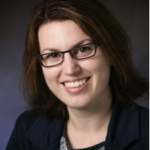Understanding Global Health
Experience campus life and gain a deeper understanding of global health issues!
July 24 – 28, 2017
This intensive course for motivated high school students offers a college-level interdisciplinary survey of global health. Students will examine and compare intra- and inter-national differences in both disease burden and characteristics, quality, and access to healthcare systems to address those burdens. The course will study the intersections of nutrition, taking note of medical, economic, social, epidemiological, and political contributors to healthcare access and quality, and enable students to think critically about the broader implications of health as a human right.
The course includes discussions with University faculty and expert practitioners, combining an academic assessment of the fundamental challenges of global health with case-study and project-based instruction related to global health. Students will engage in research, visit clinics, interact with field experts, and make team presentations on their findings.
The course involves field trips to the OSF Jump Simulation and Education Center in Peoria. Students that successfully complete the course will receive a Center for Global Studies Global Leadership Certificate.
Enrollment is limited to 20 students.
What is Global Health?
Global health is a relatively new concept emerging two decades to describe health problems, issues, and concerns that transcend national boundaries and which may be influences by circumstances or experiences in other countries which are best addressed by cooperative actions and solutions (Institute of Medicine, USA 1997).
Global health education and research is inherently multidisciplinary involving the fields of social science, natural science, behavioral science, law, economics, engineering, environmental science, and agriculture.
Course Objectives:
- Identify key differences in burden of disease, nutrition, healthcare systems, and access across the world
- Understand role of CDC, WHO, and other international organizations in global health
- Perform in-depth analysis of disease and compare challenges and solutions across different social, economic, and developmental contexts
- Relate healthcare issues to broader societal issues including politics, ethics, economics, and resource availability
- Propose a plan for better healthcare access and equity
Dr. Jennifer Amos, Lead Faculty Instructor
 Dr. Jenny Amos is a Teaching Associate Professor for the Department of Bioengineering at the University of Illinois Urbana-Champaign. She teaches appropriate design techniques and is core faculty member of the Interdisciplinary Global Health Scholars program through the Center for Global Studies. http://globalhealth.illinois.edu/ighs
Dr. Jenny Amos is a Teaching Associate Professor for the Department of Bioengineering at the University of Illinois Urbana-Champaign. She teaches appropriate design techniques and is core faculty member of the Interdisciplinary Global Health Scholars program through the Center for Global Studies. http://globalhealth.illinois.edu/ighs
Kenneth Long, Graduate Student Co-Instructor
 Kenneth Long is a MD/PhD Graduate Student in the Department of Bioengineering. Having worked on development projects in both Cameroon and Cambodia, he is now working with Jenny and other faculty to develop a global health partnership with Njala University in Sierra Leone (http://globalhealth.illinois.edu). His research focuses on smartphone-based diagnostics for infectious diseases.
Kenneth Long is a MD/PhD Graduate Student in the Department of Bioengineering. Having worked on development projects in both Cameroon and Cambodia, he is now working with Jenny and other faculty to develop a global health partnership with Njala University in Sierra Leone (http://globalhealth.illinois.edu). His research focuses on smartphone-based diagnostics for infectious diseases.
For Center for Global Studies staff, please see http://cgs.illinois.edu/people/groups/staff
